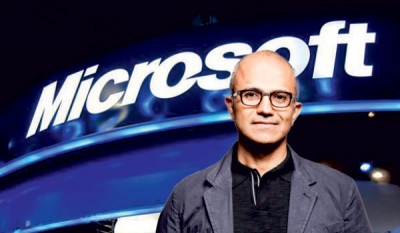When the company announced that it intended to sell part of its mapping service to Uber and its mobile display business to AOL, it turned out to only be the first step.
Microsoft has now declared that it will take a $7.6 billion-dollar writeoff on Nokia — more than the $7.2 billion it paid for the company.
It will also cut 7800 jobs as part of a restructuring plan.
In a memo distributed to Microsoft employees, Nadella remarks that he is “committed to our first-party devices including phones,” but consider the wider implications of the announcement.
By writing off more than the purchase price of Nokia (there’s another $750 million to $850 million restructuring fee on top of the $7.6 billion), Nadella is sending a message that conventional handset manufacturing and design isn’t something Microsoft wants to be involved in going forward.
Nadella does explicitly refer to flagship devices, saying that the company tends to limit its focus to three consumer segments (value, business, and flagship phones).
What’s less clear is what this will mean for existing devices or if Microsoft intends to change its manufacturing partners when it launches hardware.
After buying Nokia, Microsoft was in the position of owning its own primary distribution channel — writing off the company could mean that it intends to partner up again with other companies to bring flagship devices to market.
According to Nadella, search is a core feature of everything Microsoft is doing, and a technology that impacts Cortana, Office 365, Windows 10, and Azure, Microsoft’s cloud platform.
It’s not clear how much farther Nadella intends to take the restructuring, or how committed he is, long-term, to other platforms like Microsoft’s Surface.
Announcement also puts last week’s rumor about Microsoft exploring Android-related options for the future of its mobile division in more context.
Nadella has just reversed one of his predecessors more significant acquisitions in a move that will cost Microsoft over $8 billion dollars when all is said and done.
The idea that he’d be willing to consider radically departing from previous stances on Windows Mobile just isn’t hard to buy — at least, not any more.


























